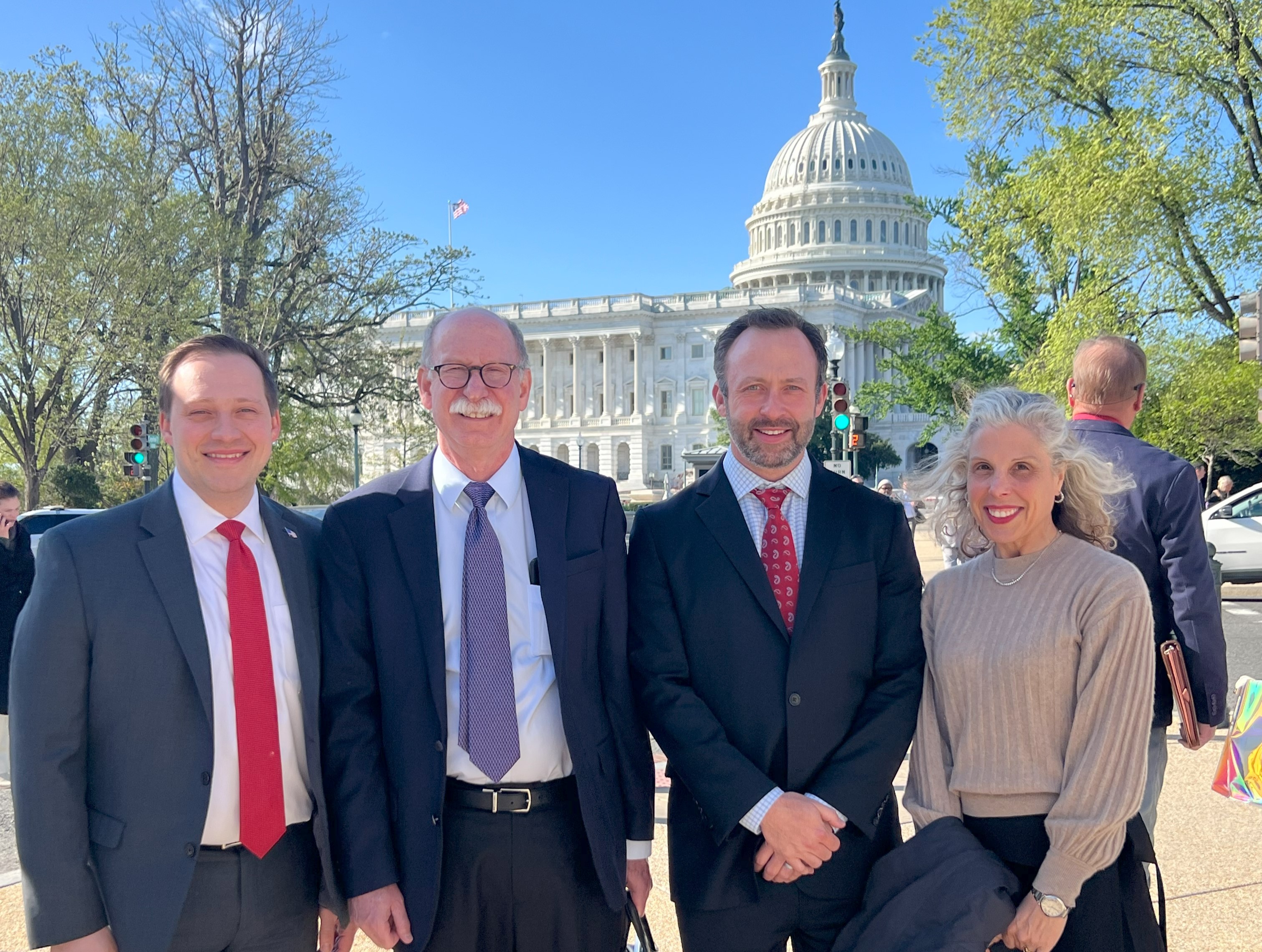LUGPA Policy Update: Seniors’ Access to Critical Medications Act
Delivering high-quality, outcomes-driven care depends on patient compliance with prescribed treatments. The effectiveness of life-extending and lifesaving medications hinges on three key factors: (1) ensuring patients understand why they are taking a prescribed medication, (2) eliminating logistical and financial barriers that hinder access, and (3) monitoring adherence and adjusting treatments as needed. However, policymakers often overlook the critical role of monitoring compliance and modifying therapies. Under current Medicare regulations, physicians referring patients for Designated Health Services (DHS) to entities with which they have financial relationships must navigate the Stark Law’s self-referral restrictions. The In-Office Ancillary Services (IOAS) exception allows physicians to dispense outpatient medications directly from their practice or practice-owned pharmacy, improving access and adherence. Yet, CMS’ restrictive interpretation of the IOAS exception prohibits mailing or delivering medications and prevents caregivers, family members, or spouses from picking up prescriptions on behalf of patients. These arbitrary barriers disproportionately impact severely ill patients, those in rural areas, and individuals with limited transportation options. The Impact on Patient Access A 2017 CDC study found that 20–31% of prescriptions are never filled, and nearly 50% of patients do not adhere to their treatment plans, leading to severe health consequences and higher healthcare costs. When prescriptions go unfilled, patients face increased disease progression, hospitalizations, and costly emergency interventions. Many LUGPA physician groups provide in-office pharmaceutical dispensing services to improve patient access, coordination, and adherence. In-office dispensing eliminates common barriers such as patient confusion, illegible prescriptions, and lack of follow-up. By enabling immediate medication adjustments, physicians ensure greater compliance and better health outcomes. CMS’ Inconsistent Policies & the Need for Reform During the COVID-19 Public Health Emergency (PHE), CMS waived Stark Law restrictions, allowing physicians to mail or deliver medications and permitting caregivers to pick up prescriptions. These flexibilities significantly improved medication access without leading to fraud or abuse. However, when the PHE ended, CMS reinstated its restrictive interpretation, reversing these patient-centered policies. This decision contradicts CMS’ own Framework for Health Equity, which aims to reduce healthcare disparities. Additionally, a 2021 CMS FAQ further threatens access to prescription medications—particularly for cancer patients requiring advanced oral oncolytics. CMS must retract this FAQ to prevent further harm to Medicare beneficiaries. The Seniors’ Access to Critical Medications Act H.R. 2484, the Seniors’ Access to Critical Medications Act, sponsored by U.S. Representatives Diana Harshbarger (R-TN) and Debbie Wasserman Schultz (D-FL), provides a bipartisan, commonsense solution by amending the Stark Law to allow, for a five-year period starting January 1, 2026, the following patient-friendly flexibilities:
To assess the impact of these reforms, the legislation directs the Government Accountability Office (GAO) to conduct a study within four years of enactment, examining:
LUGPA’s Advocacy Efforts LUGPA strongly supports the Seniors’ Access to Critical Medications Act and urges Congress to consider this vital legislation. By eliminating unnecessary barriers, this bill ensures that Medicare patients—particularly those who are rural, elderly, or have mobility challenges—can access essential medications without delay. It also aligns with CMS's commitment to advancing health equity and patient-centered care. Access to critical medications is fundamental to patient care, safety, and equity. Congress must act now to restore these commonsense flexibilities, ensuring better health outcomes while reducing burdens on both patients and physicians.
SEE ALSO LUGPA Policy Update on H.R. 5526, Seniors’ Access to Critical Medications Act of 2023 - June 2024
LUGPA Policy Brief: Seniors' Access to Critical Medications Act October 2023
Regrettably, policymakers often ignore the importance of monitoring patient compliance and ongoing monitoring and adjustments of therapeutic regimens. This policy brief provides insight into these issues and highlights the critical role of physician practices in promoting patient compliance. A 2017 CDC study revealed that 20 to 31 percent of prescribed medications are never filled. As a result, nearly 50 percent of patients do not adhere to their treatment plans, with significant long-term adverse healthcare outcomes and associated increases in expenses. Patients can experience short-term and long-term complications when prescriptions remain unfilled, ultimately driving up resource utilization and healthcare expenses. As a component of integrated care, many physician groups within LUGPA offer pharmaceutical dispensing services to their patients. LUGPA firmly believes that dispensing certain pharmacologic treatments, particularly in the setting of advanced oral oncolytic medications in a physician's practice, enhances patient access, care coordination, and compliance monitoring. In-office dispensing eliminates factors contributing to medication non-adherence, including patient education, unclear or illegible prescriptions, while promoting intensive follow-up. This enables immediate medication adjustments by a provider when necessary, enhancing regimen compliance and therapeutic efficacy. Because it is clear that many medical services are intimately linked and the manifest benefits to patients of care delivered in an integrated fashion, Stark Law regulations provide several specific exemptions for certain in-office ancillary services, allowing physician practices to provide critical medical services, including in-office dispensing, radiation therapy, imaging, and pathology. However, a problematic FAQ issued by CMS in 2021 could potentially limit access to prescription medications for Medicare beneficiaries, with a particularly potentially detrimental impact on a subset of patients suffering from advanced malignancies. This policy brief calls for the retraction of this FAQ to protect access to life-saving treatments and to maintain the autonomy of patients and physicians in determining the optimal way to deliver care.
On September 18, a new bipartisan bill was introduced that addresses many of LUGPA’s concerns—the Seniors’ Access to Critical Medications Act (HR 5526), introduced by Reps. Harshbarger and Wasserman-Shultz. The Seniors' Access to Critical Medications Act amends section 1877 of the Social Security Act, clarifying that delivery of medicines through various methods or by allowing a family member or caregiver to pick up medication on behalf of a patient does not violate the Stark Law and does fall within the scope of Stark's IOAS exception. The bill requires CMS to address the FAQ interpretation of current law prohibiting delivering medicines to patients not physically present in the physician's office. It also rescinds two CMS FAQs on this matter. The bill would be effective for services consisting of drugs or necessary supplies furnished on or after May 11, 2023, coinciding with the expiration of the Stark waiver related to this issue after the COVID-19 public health emergency. LUGPA remains committed to advocating for patient access to integrated urology care and will continue its efforts to protect the autonomy of patients and physicians in making treatment decisions. For more information on in-office dispensing, you can read LUGPA’s Policy Brief here.
|




